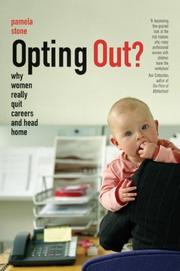| Listing 1 - 2 of 2 |
Sort by
|

ISBN: 1282358626 9786612358623 0520940059 9780520940055 9781282358621 9780520249059 0520249054 9780520249066 0520249062 6612358629 Year: 2007 Publisher: Berkeley University of California Press
Abstract | Keywords | Export | Availability | Bookmark
 Loading...
Loading...Choose an application
- Reference Manager
- EndNote
- RefWorks (Direct export to RefWorks)
Late-nineteenth-century Britain saw the privileged classes forsake society balls and gatherings to turn their considerable resources to investigating and relieving poverty. By the 1890's at least half a million women were involved in philanthropy, particularly in London. Slum Travelers, edited, annotated, and with a superb introduction by Ellen Ross, collects a fascinating array of the writings of these "lady explorers," who were active in the east, south, and central London slums from around 1870 until the end of World War I. Contributors range from the well known, including Annie Besant, Sylvia Pankhurst, and Beatrice Webb (then Potter), to the obscure. The collection reclaims an important group of writers whose representations of urban poverty have been eclipsed by better-known male authors such as Charles Dickens and Jack London.
Women social reformers --- Women in charitable work --- Poor --- Social problems --- History. --- Services for --- London (England) --- Social conditions --- annie besant. --- anthology. --- anthropologists. --- beatrice potter webb. --- british history. --- british society. --- british writers. --- class differences. --- discussion books. --- england. --- english ladies. --- europe. --- gender norms. --- gender studies. --- great britain. --- historians. --- historical. --- late 19th century. --- london slums. --- london. --- lower classes. --- philanthropists. --- philanthropy. --- poor. --- poverty relief. --- poverty. --- slum life. --- sylvia pankhurst. --- urban poverty. --- wealth and culture. --- wealth. --- world war i. --- wwi.

ISBN: 1282360620 9786612360626 0520941799 1433708345 9780520941793 9781429478076 1429478071 9780520244351 0520244354 9780520256576 0520256573 9781282360624 Year: 2007 Publisher: Berkeley, Calif. ; London : University of California Press,
Abstract | Keywords | Export | Availability | Bookmark
 Loading...
Loading...Choose an application
- Reference Manager
- EndNote
- RefWorks (Direct export to RefWorks)
Noting a phenomenon that might seem to recall a previous era, The New York Times Magazine recently portrayed women who leave their careers in order to become full-time mothers as "opting out." But, are high-achieving professional women really choosing to abandon their careers in order to return home? This provocative study is the first to tackle this issue from the perspective of the women themselves. Based on a series of candid, in-depth interviews with women who returned home after working as doctors, lawyers, bankers, scientists, and other professions, Pamela Stone explores the role that their husbands, children, and coworkers play in their decision; how women's efforts to construct new lives and new identities unfold once they are home; and where their aspirations and plans for the future lie. What we learn-contrary to many media perceptions-is that these high-flying women are not opting out but are instead being pushed out of the workplace. Drawing on their experiences, Stone outlines concrete ideas for redesigning workplaces to make it easier for women-and men-to attain their goal of living rewarding lives that combine both families and careers.
Stay-at-home mothers. --- Work and family. --- Choice (Psychology) --- Life change events. --- Events, Life change --- Experiences, Stressful life --- Life events, Stressful --- Life experiences, Stressful --- Stressful events --- Stressful life events --- Developmental psychology --- Experience --- Stress (Psychology) --- Psychology --- Families and work --- Family and work --- Families --- Dual-career families --- Work-life balance --- Stay-at-home moms --- Mothers --- american culture. --- american society. --- bankers. --- career. --- caring for a family. --- children. --- cultural pressures. --- cultural studies. --- doctors. --- family and career. --- family matters. --- family. --- gender and labor. --- gender equality. --- gender expectations. --- gender norms. --- gender studies. --- lawyers. --- men and women. --- motherhood. --- mothers. --- parenthood. --- privatized family. --- professional women. --- pushed out of the workplace. --- returning home. --- scientists. --- sociology. --- staying home with kids. --- time demanding jobs. --- united states of america. --- women and work.
| Listing 1 - 2 of 2 |
Sort by
|

 Search
Search Feedback
Feedback About UniCat
About UniCat  Help
Help News
News